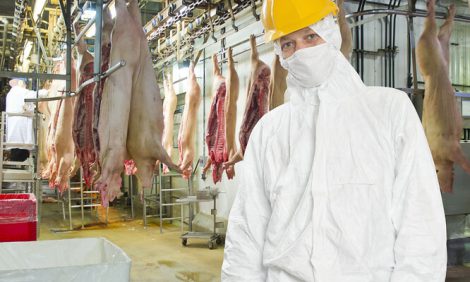



First GM 'Phytase' Corn Licensed
BEIJING - China-based supplier of crop seeds and agri-biotech research, Origin Agritech, says it has licensed a new genetically modified corn variety that includes the beneficial enzyme Phytase.
This transgenic corn is believed to be one of the first of its kind to be approved and sold commercially into the domestic marketplace, says a report for Fox Business. It is expected to be commercially available in 2009.
Phytase is currently used as an additive in animal feed to breakdown phytic acid in corn, which holds 60 per cent of the phosphorus in corn. Phosphorus is an essential element for the growth and development of all animals, and plays key roles in skeletal structure and in vital metabolic pathways. The Phytase enzyme increases phosphorus absorption in animals by 60 per cent and is used as a mandatory additive for animal feed in Europe, Southeast Asia, South Korea, Japan, Taiwan to reduce the environmental impact of livestock manure.
"Phytic acid, the main form of phosphorous in plant-origin animal feeds, is poorly available to mono gastric animals as they lack the enzyme capable of hydrolyzing phytic acid to release phosphate. Genetic modification is the world class standard and that is where China is moving," explained Dr. Yun-Liu Fan, a scientist at the Chinese Academy of Agricultural Science and member of the development team.
"Our genetically modified corn will reduce the need for such phosphate supplements and reduce feed costs. We partnered with Origin because of their strong execution ability, research and production capability, and sales network to benefit the Chinese animal nutrition market," she added.
The development of this phytase containing feed cereal means that feed producers will not have to purchase phytase and corn separately. This will reduce production costs and improve manufacturing efficiency.
The Phytase transgenic corn was developed and licensed from the CAAS. It has taken seven years to produce.
To read the full story click here.
Phytase is currently used as an additive in animal feed to breakdown phytic acid in corn, which holds 60 per cent of the phosphorus in corn. Phosphorus is an essential element for the growth and development of all animals, and plays key roles in skeletal structure and in vital metabolic pathways. The Phytase enzyme increases phosphorus absorption in animals by 60 per cent and is used as a mandatory additive for animal feed in Europe, Southeast Asia, South Korea, Japan, Taiwan to reduce the environmental impact of livestock manure.
"Phytic acid, the main form of phosphorous in plant-origin animal feeds, is poorly available to mono gastric animals as they lack the enzyme capable of hydrolyzing phytic acid to release phosphate. Genetic modification is the world class standard and that is where China is moving," explained Dr. Yun-Liu Fan, a scientist at the Chinese Academy of Agricultural Science and member of the development team.
"Our genetically modified corn will reduce the need for such phosphate supplements and reduce feed costs. We partnered with Origin because of their strong execution ability, research and production capability, and sales network to benefit the Chinese animal nutrition market," she added.
Massive Potential
The worldwide phytase potential market size is US$500 million, including US$200 million for China alone, according to a China Feed Industry Study. The corn seed market in China is estimated at US$1 billion. While currently microbiology is universally used to produce phytase, Origin plans to be the world's first to introduce transgenic phytase corn.The development of this phytase containing feed cereal means that feed producers will not have to purchase phytase and corn separately. This will reduce production costs and improve manufacturing efficiency.
The Phytase transgenic corn was developed and licensed from the CAAS. It has taken seven years to produce.
To read the full story click here.
Further Reading
|
|
- To read another article on phytase and livestock production click here. |






